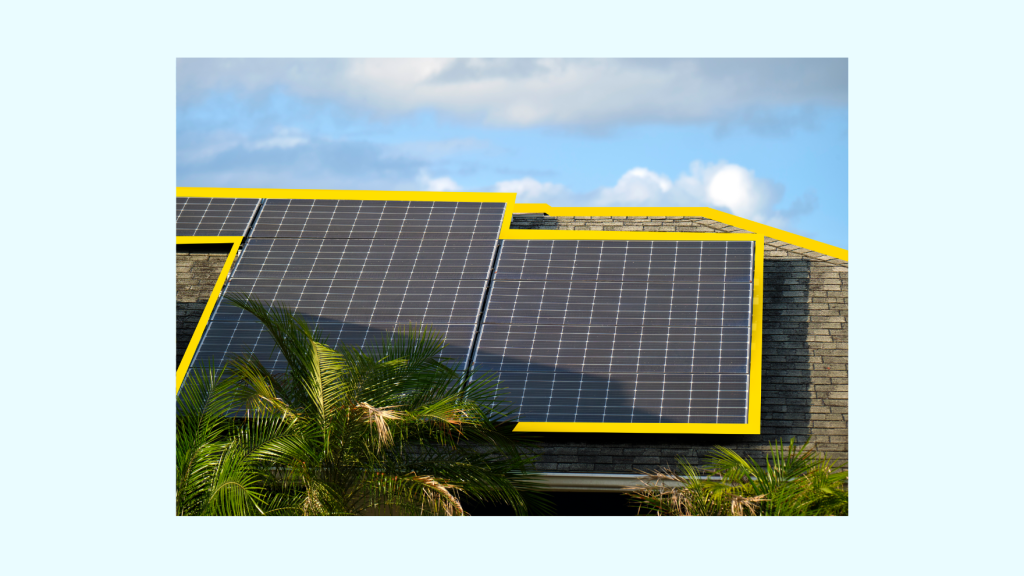Feeling a little gulp every time you catch sight of your electricity bills? Perhaps it’s high time to take a closer look at how you’re using electricity. Read on to learn tips on how to save electricity and stash some extra cash in your pocket.
How to Save Electricity at Home
| Energy-Saving Habit | How Much You Can Expect To Save Annually |
| Switching off power sockets | $25 |
| Switching off storage water heater when not in use | $124 |
| Selecting appliances with 5-tick energy efficient ratings | Save around $303¹ if you purchase a 5-tick air-con compared to a 2-tick air-con. Save around $59¹ if you purchase a 4-tick refrigerator compared to a 2-tick refrigerator. |
| Invest in LED lights | Up to $35² per bulb |
| Using only a fan | Up to $441³ |
| Switching the air-conditioner only for an hour before switching to a fan | About $386³ |
| Set the temperature at 25°C | For every degree raised, you can save about $13. |
| Installing solar panels | 70 – 80% of your current electricity bills |
¹Assuming a multi-split 7.5kW cooling capacity inverter air conditioner used 8 hours daily
²Based on an electricity tariff of $0.2996 per kWh, assuming daily usage of 6 hours for 365 days a year.
³Based on electricity cost of $0.299 per kWh of electricity, assuming a single-split 2-tick, 2.6kW cooling capacity air-conditioner and/or a 50W standing fan.
Tip!
Maximise your savings potential by installing solar panels for your home. Use our solar simulator to receive a free quote today!
Switch off the power supply when not in use
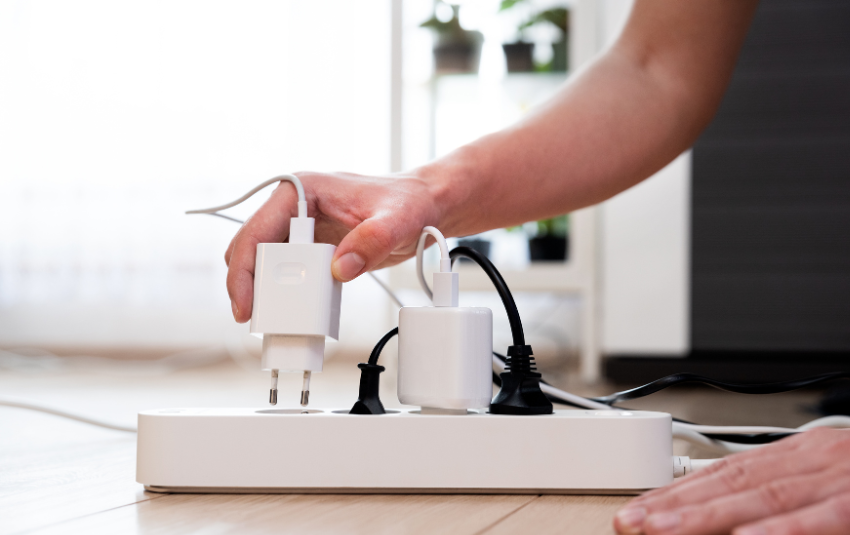
A common misconception is that standby power isn’t a significant factor toward the electricity bill, however it can account for up to 10% of your home energy consumption, costing you roughly S$25 annually. Even more surprisingly, leaving your water heater on can add an unnecessary S$124 to your bill each year.
Most households have devices like modems, routers, and even lighting kept on even when not in use. These standby powered devices contribute to hidden energy consumption.
By turning off these devices at the source, you could save up to S$150 annually. Simple changes can lead to significant savings!
Select appliances with 5-tick energy efficient ratings
Choosing 5-tick energy-efficient appliances can lead to lower monthly electricity bills, as noted in our electricity consumption survey. For example, switching from a 2-tick to a 5-tick air conditioner could save you up to S$270 annually.
By opting for higher efficiency ratings on other devices, like refrigerators and washing machines, you can further reduce your energy costs and contribute to a more sustainable lifestyle.
Invest in other smart appliances
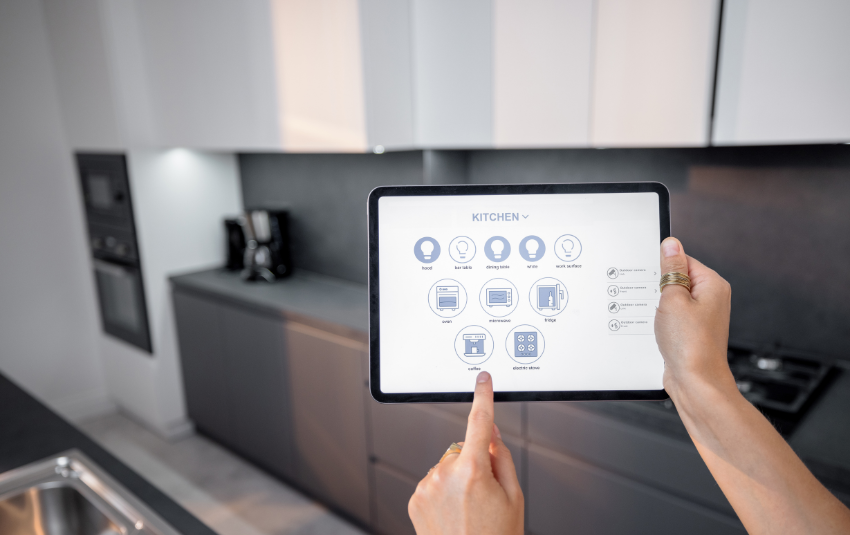
It is a well known fact that LED lights come with plenty of financial and environmental benefits. You can further enhance these benefits by investing in smart LED lights.
Smart LED lights provide better value than regular LEDs because they can be scheduled to switch off when you’re away or not using them. They can also be equipped with motion sensors, which significantly reduces your home’s electricity consumption.
Additionally, you can consider installing other smart appliances such as smart plugs and smart thermostats. Smart plugs allow you to control your appliances remotely and monitor their energy usage. Smart thermostats, paired with a smart air conditioning system, can automatically adjust the temperature, turning the air conditioning on or off as needed to maintain comfort and save energy.
Opt for a fan over air conditioning
Fans consume less than 10% of the electricity required by air conditioners for the same usage time. This can save you up to S$441 a year.
However, we understand that Singapore’s humidity can make it hard to rely on fans alone. To maximise cooling, close curtains or blinds during peak sunlight hours, or consider using a solar window film, especially for west-facing windows, to block out the sun and maintain a cooler indoor environment.
Adjust your air conditioning temperature to 25°C
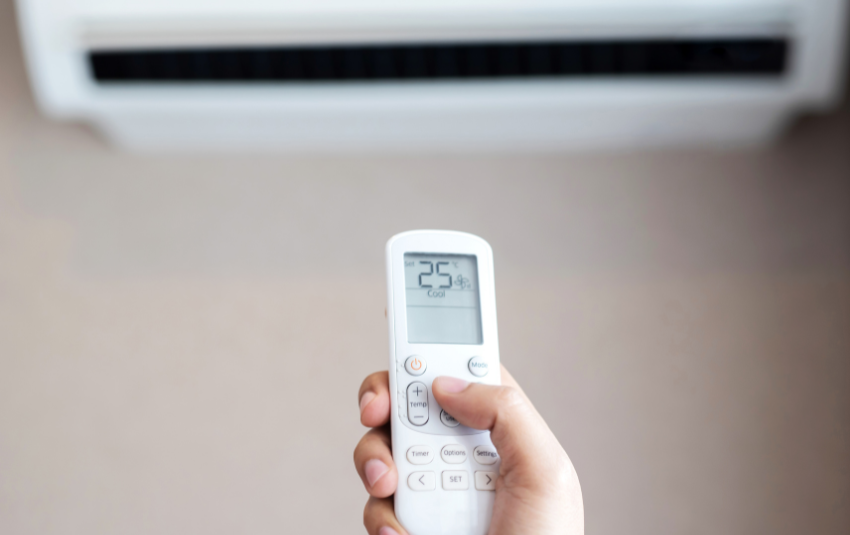
Set your air conditioner to 25°C. According to NEA, each degree the temperature is raised, an estimate of S$13 can be saved annually!
Try running the air conditioner for an hour and then switch to a fan to maintain the room’s coolness. This simple switch could save you around S$386 per year.
Avoid using a clothes dryer
Air conditioners aren’t the only culprits of high electricity bills; clothes dryers significantly contribute too.
The insights from Renewable Energy World state that heat generating appliances tend to consume more electricity than those designed for cooling. This includes microwaves, ovens, and clothes irons.
To learn more about how different appliances impact your energy costs, check out our article for interesting insights on the average household’s electricity bill!
Install Solar Panels
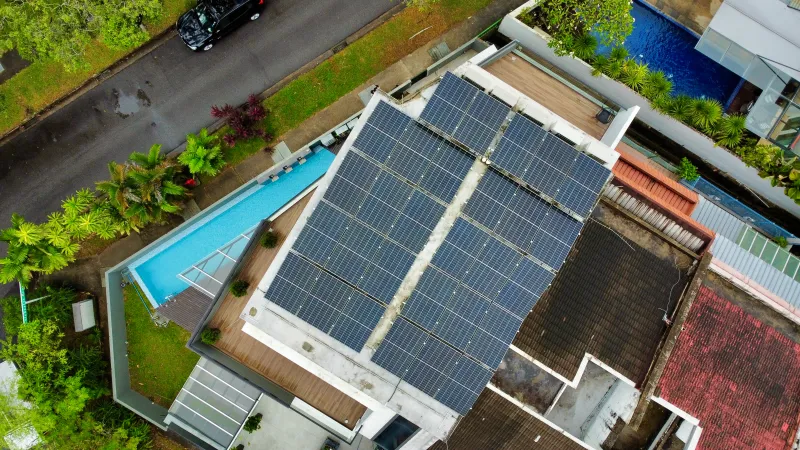
You may be wondering, all that effort just to put a dent in your bills. So, what’s the best way to significantly slash your electricity bills?
Solar panels.
With the price of solar dropping by 89% in recent years, it has become the cheapest form of renewable energy. Leveraging solar off Singapore’s abundant sunlight will be your best bet at making a real significant impact on your electricity bill.
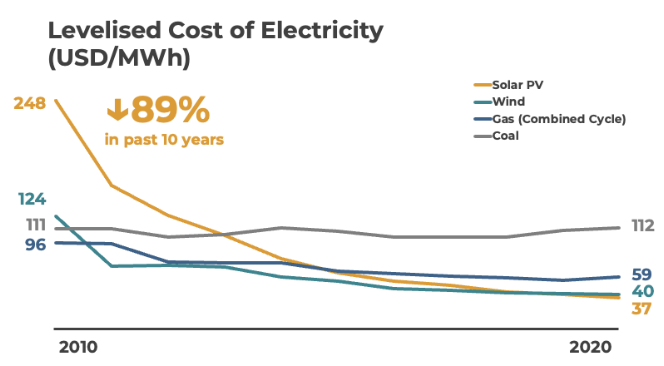
However, it’s important to note that only landed properties can freely install solar panels. Installing personal solar panels for HDB residents is currently not allowed due to building constraints and shared rooftops.
On the contrary, you might have spotted solar panels on HDB roofs. Not to burst your bubble, but these aren’t for personal use. They’re part of the HDB’s Green Towns programme, a 10-year plan to make HDB towns more sustainable and livable by reducing the overall carbon footprint.
These HDB solar panels primarily power common services such as lifts, lights, and water pumps. Any excess energy is sold back to the grid through metering credit schemes, helping to offset the initial capital outlay for the installation.
In a way, you’re still benefiting from these sustainability efforts, as the electricity savings from these common services help to keep overall maintenance fees lower.
Tip!
Check out our article to assess your rooftop’s suitability and use our solar simulator for a personalised assessment.
How to Save Electricity For Commercial Properties: Sign A Solar PPA
Apart from installing solar panels for your home, did you know you can also install commercial solar panels?
For commercial property owners, we offer a solution through Power Purchase Agreements (PPAs). By leasing your unused roof space to us, we handle the entire installation process.
Afterward, you can purchase the solar electricity generated by these panels at a reduced price, typically 50–70% lower than your existing electricity bills. This means you start saving on electricity costs immediately.
Saving Electricity: Towards a Sustainable Energy Future
It’s clear that embracing energy-saving practices isn’t just about being eco-friendly – it’s about smart living. With each eco-conscious decision, whether it’s flicking off the lights or harnessing solar power, we’re paving the way towards a greener, brighter tomorrow. So, let’s power down the waste and amp up the sustainability – our planet will thank us for it!



